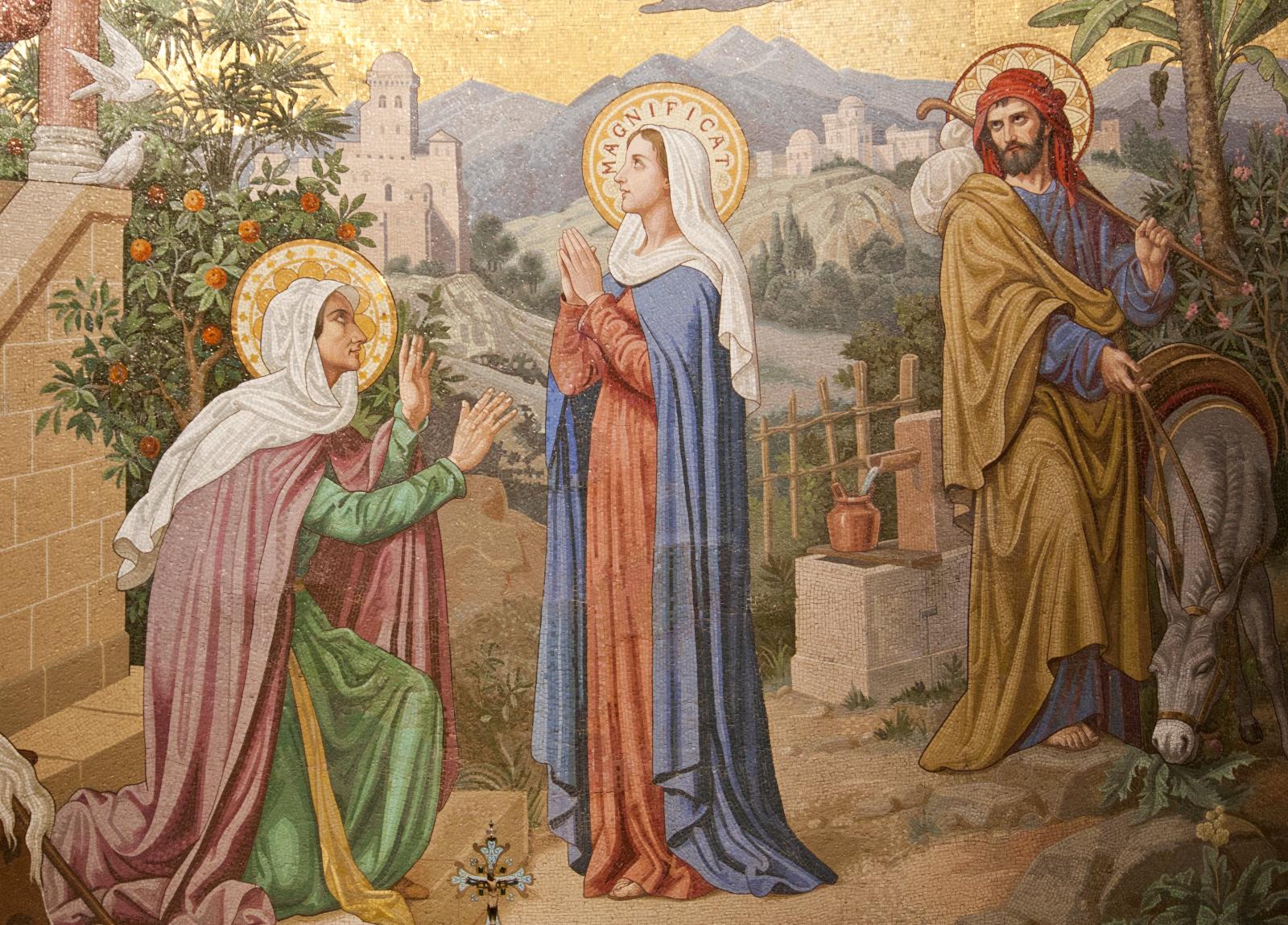By Roger Carr-Jones, Marriage & Family Life Coordinator for the Diocese of Westminster
The account of the Visitation is a well-known story, one that is made immediately present whenever we sing or say the Magnificat, the song that Mary sang to her cousin Elizabeth. Mary’s is a life of service and praise. There is also a real sense of breathless, urgent and exuberant joy in this story. A need arises concerning her cousin Elizabeth and Mary addresses it. In our own way, we too might notice where we have reached out to serve others, noticing that there is always joy in service.
No matter how familiar a passage is, each rereading can speak to us in new and unexpected ways. For me, this year, the Visitation has brought home the tremendous gift of the unborn life and the ways in which God loves and trusts us to be his co-workers. Though Mary’s faith in God is of course deeper and her work far more profound, when we individually reach to support others, we change and so does our world. Those small acts of love and service are of profound significance.
One of the most intimate relationships in life, other than loving someone, is the bond that exists between a biological mother and her unborn baby. It is the greatest gift of motherhood; the sharing of a bond that cannot be replicated. If you have ever attended a pre-natal class, what holds your attention? I think it is noticing the expectant mother stroking her growing womb, alert to the slightest movement and conversing with the unborn baby. As with acts of service, pregnancy changes the bodies of the mother and unborn child. Of course, whilst there is joy in carrying a baby, it can also be challenging and at times overwhelming. It is at these moments that others reaching out in love and service really counts.
This practical aspects of the story of the Visitation provide such an example. Here the older mother-to-be, Elizabeth, receives the care and attention of her young cousin, Mary. I find it quite striking that no men are mentioned in the narrative. Instead, the focus is on the reciprocal relationship of the mothers and their sharing their individual ‘good news’, their personal, yet different miracles. It is a beautiful and very human encounter. No doubt, like all mothers-to-be, they shared the joys, worries and hopes of motherhood. This connection between the mothers, their unborn babies and the need to share that joy lies at the heart of this encounter.
This reminded me that one of the most remarkable aspects of scripture is the way in which God trusts us, as humans, to simply get on with things. After Mary’s ‘yes’, the angel abruptly left. Mary is trusted to manage. This same sense of trust is very much the story of the post-Pentecost Church, which brings to my mind the image of the Holy Spirit as a parent, encouraging their young child to take their first stumbling steps. It is a moment of transformation from baby to toddler, and the first sign of independence as they learn to move around.
At a time when human life is often treated as disposable or as a commodity, the Visitation provides the moment to celebrate and rejoice in, the intimate bond between a biological mother and her unborn child. This intimacy is not only one of the greatest gifts of motherhood, its joy needs to be shared. This is beautifully captured in this familiar story of the Visitation, which has at its heart, Mary.
There’s nothing wrong in holding a ‘baby shower’ or similar event provided it is the celebration of the unborn life that lies at its heart. At the Visitation both Elizabeth and Mary are indeed celebrating, celebrating the joy of the unborn miracles within them. This day provides the opportunity for mothers in particular and society as a whole to reflect on the unique bond of mother and baby. As Mary reached out to Elizabeth, as Christians we are called to reach out in service to others, not least the most vulnerable of all, the unborn.
Image: Fr Lawrence Lew, O.P
